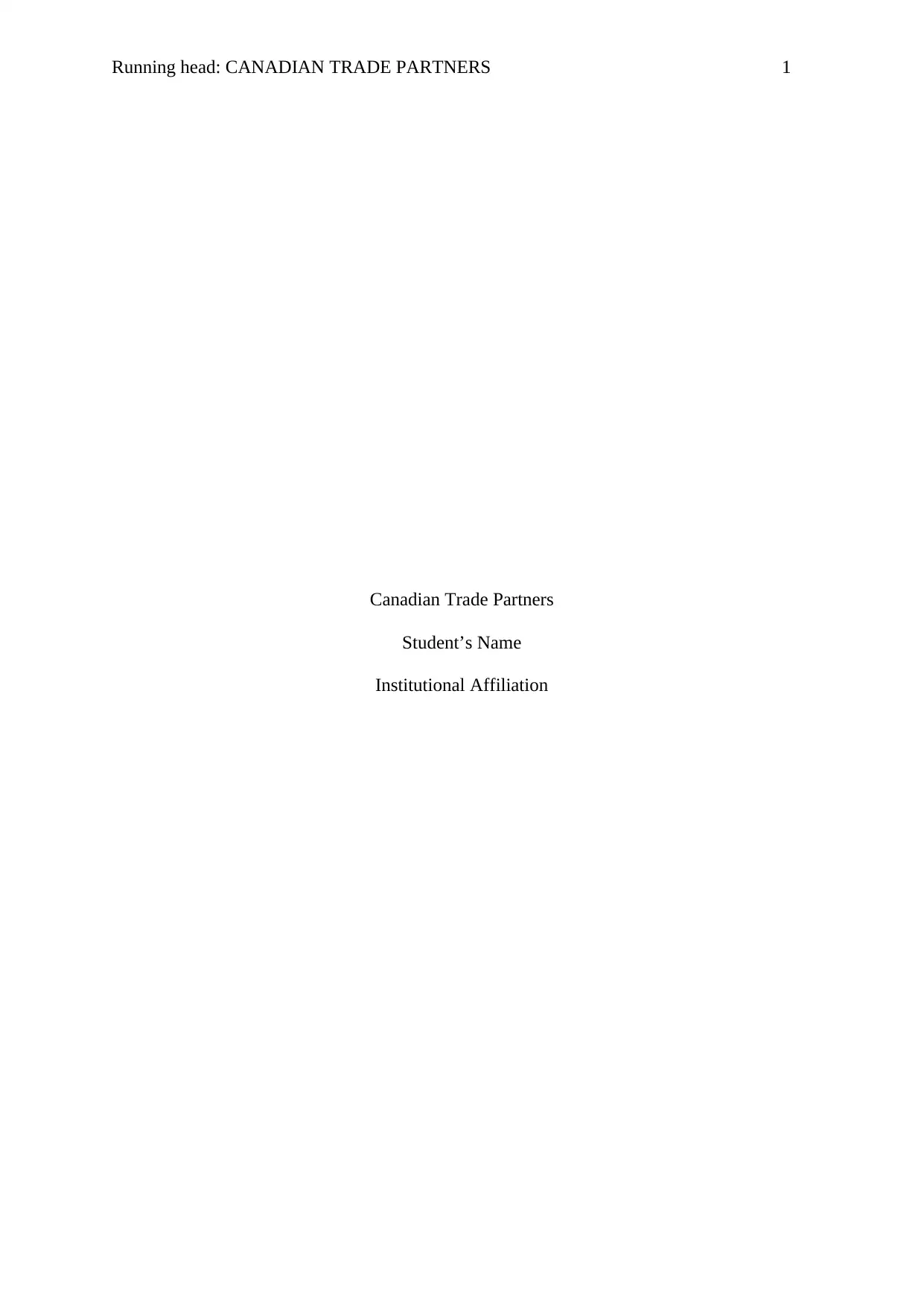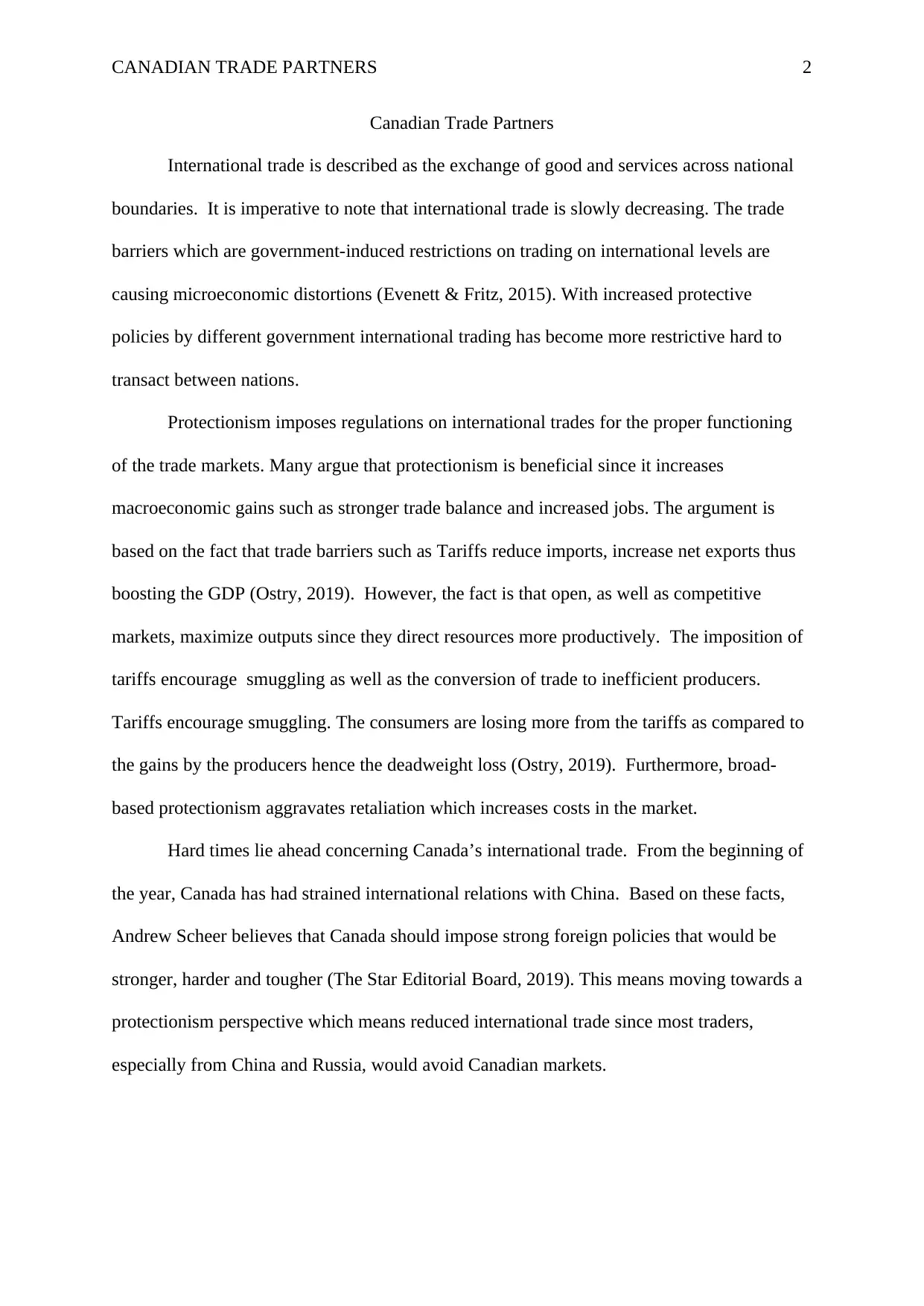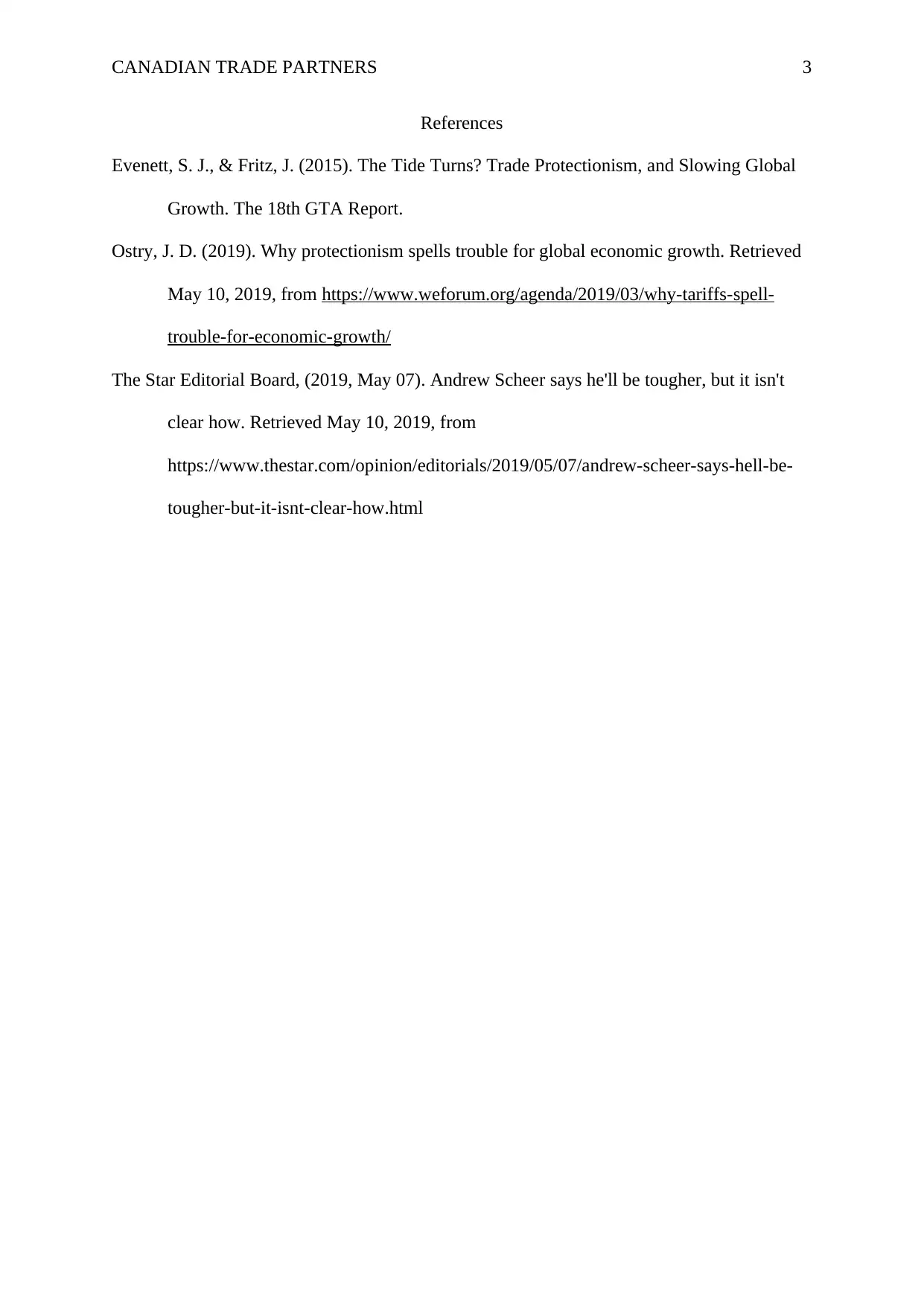Analysis of Canadian Trade Partners: Trade Policies and Impacts
VerifiedAdded on 2023/03/20
|3
|425
|67
Report
AI Summary
This report analyzes Canadian trade partners, focusing on the impact of trade policies and international trade dynamics. The report begins by defining international trade and highlighting the current trend of decreasing international trade due to protectionist policies and trade barriers like tariffs. It then explores the implications of these policies, including microeconomic distortions and the potential for increased costs due to retaliation. The report examines the Canadian context, mentioning strained international relations and the perspective of imposing strong foreign policies. It cites relevant sources and concludes by emphasizing the challenges facing Canadian international trade in the current global environment. The report uses the views of various authors to justify the claims made.
1 out of 3




![[object Object]](/_next/static/media/star-bottom.7253800d.svg)